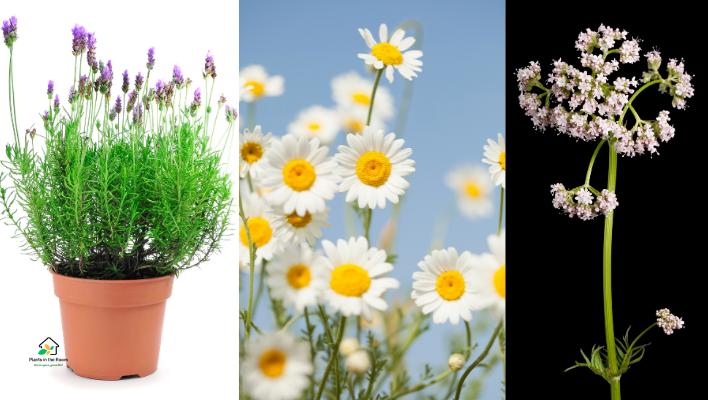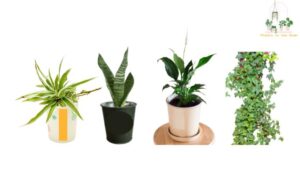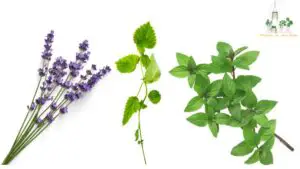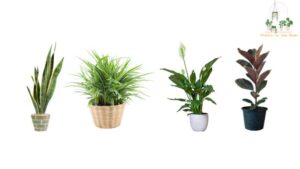This article covers the following areas –
- 1. Lavender
- 2. Snake Plant
- 3. Golden Pothos
- 4. Aloe Vera
- 5. Jasmine
- 6. Peace Lily
- 7. Spider Plant
- 8. Rubber Plant
- 9. Gardenia
- 10. Chamomile
- 11. Valerian
- 12. English Ivy
- 13. Philodendron
- 14. Boston Fern
- 15. Chinese Evergreen
- In Conclusion
Like me, you probably value a good night’s sleep for your well-being. However, getting quality rest can be tough. That’s when I discovered the world of indoor plants and their ability to enhance sleep. Surprisingly, many houseplants can help us sleep better. So, I created a guide to introduce the top 15 indoor plants that can improve sleep and overall health.
Indoor plants can help improve sleep by purifying air, providing a calming ambiance, and offering benefits like releasing oxygen or maintaining humidity. Sleep-improving plants include:
- Lavender
- Snake Plant
- Golden Pothos
- Aloe Vera
- Jasmine
- Peace Lily
- Spider Plant
- Rubber Plant
- Gardenia
- Chamomile
- Valerian
- English Ivy
- Philodendron
- Boston Fern
- Chinese Evergreen
Now let me share the reasons why and how these plants can make a difference in your sleep. In each section, I’ll individually talk about how these 15 plants can help improve your sleep.
1. Lavender

Lavender (Lavandula) has been used for centuries for its calming and soothing properties. Its scent is known to help reduce anxiety and improve sleep quality. Placing a lavender plant in your bedroom can help you relax and drift off to sleep more quickly. Plus, it’s a beautiful addition to any space!
Lavender can help improve sleep because:
- Its calming scent reduces stress hormones and promotes relaxation.
- It has been shown to decrease heart rate and blood pressure, leading to a more restful sleep.
- The fragrance can improve sleep quality by increasing the amount of deep sleep you experience.
2. Snake Plant
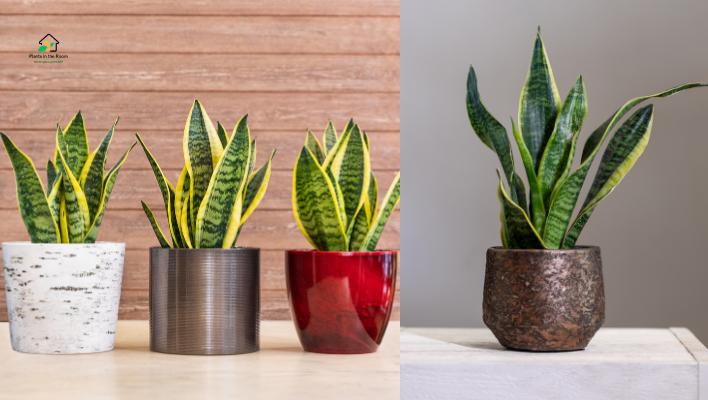
Also known as the mother-in-law’s tongue, the snake plant (Sansevieria trifasciata) is a popular choice for those looking to improve their sleep. This plant is a fantastic air purifier, removing toxins like formaldehyde and benzene from the air. Additionally, it releases oxygen at night, which can help improve the overall air quality in your bedroom.
The snake plant can help improve sleep because:
- It purifies the air by removing toxins like formaldehyde and benzene.
- It releases oxygen at night, leading to a fresher and more oxygen-rich sleeping environment.
- The snake plant is low-maintenance, meaning less stress for the owner, which can contribute to better sleep.
3. Golden Pothos
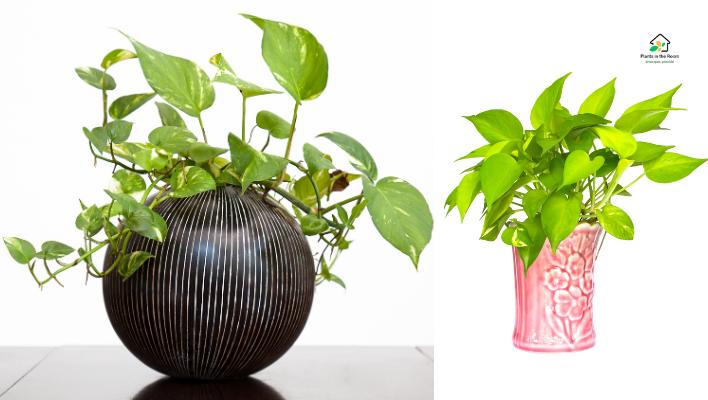
The golden pothos (Epipremnum aureum) is a fast-growing, trailing plant that’s excellent for beginners. It’s known for its air-purifying properties and can help remove indoor air pollutants like benzene, formaldehyde, and xylene. This can lead to better sleep by creating a cleaner, fresher environment in your bedroom.
Golden pothos can help improve sleep because:
- It removes indoor air pollutants like benzene, formaldehyde, and xylene.
- It’s a fast-growing plant that helps create a visually calming environment.
- The cleaner air it provides can lead to fewer headaches and respiratory issues, promoting better sleep.
4. Aloe Vera

Aloe vera (Aloe barbadensis) is well-known for its various health benefits, including its ability to purify the air. Like the snake plant, aloe vera releases oxygen during the night, which can contribute to better sleep. Plus, having an aloe vera plant on hand means you’ll always have access to the gel inside its leaves, which can be used to soothe sunburns and other skin irritations.
Aloe vera can help improve sleep because:
- It releases oxygen at night, improving air quality and promoting better sleep.
- It purifies the air by removing harmful pollutants.
- The soothing gel from the plant’s leaves can provide relief for skin irritations, which may otherwise disrupt sleep.
5. Jasmine

Jasmine (Jasminum) is a beautiful flowering plant with a sweet, calming scent. Studies have shown that jasmine can help reduce anxiety levels, leading to improved sleep quality. Placing a jasmine plant near your bed can help you relax and enjoy a more restful slumber.
Jasmine can help improve sleep because:
- Its sweet, calming scent reduces anxiety levels.
- The fragrance can help induce sleep and improve overall sleep quality.
- It’s a visually attractive plant, adding a soothing element to your bedroom environment.
6. Peace Lily
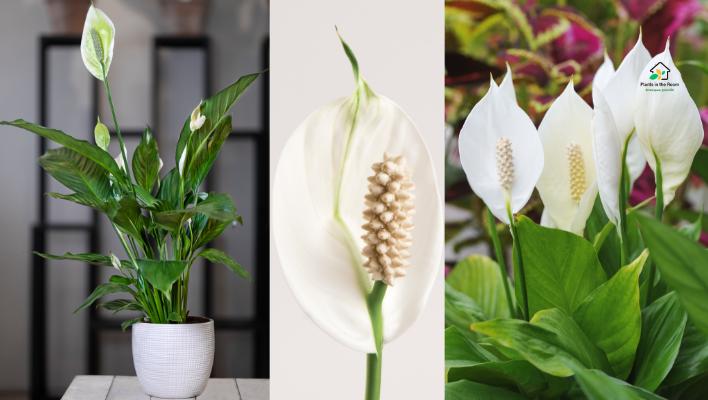
The peace lily (Spathiphyllum) is not only visually appealing but also a powerful air purifier. This plant can help remove airborne toxins like benzene, formaldehyde, and trichloroethylene. It also helps to maintain humidity levels in your bedroom, which can prevent dry throats and nasal passages, promoting a more comfortable night’s sleep.
The peace lily can help improve sleep because:
- It removes airborne toxins like benzene, formaldehyde, and trichloroethylene.
- It helps maintain humidity levels in your bedroom, preventing dry throats and nasal passages.
- The plant’s elegant appearance contributes to a calming atmosphere.
7. Spider Plant

The spider plant (Chlorophytum comosum) is another excellent air-purifying option. It’s known to remove pollutants like formaldehyde, xylene, and toluene from the air. Cleaner air in your bedroom can lead to fewer headaches and respiratory issues, which can contribute to better sleep quality.
The spider plant can help improve sleep because:
- It removes pollutants like formaldehyde, xylene, and toluene from the air.
- Cleaner air can lead to fewer headaches and respiratory issues, promoting better sleep.
- The plant is non-toxic and safe for households with pets and children, creating a worry-free environment for better sleep.
8. Rubber Plant
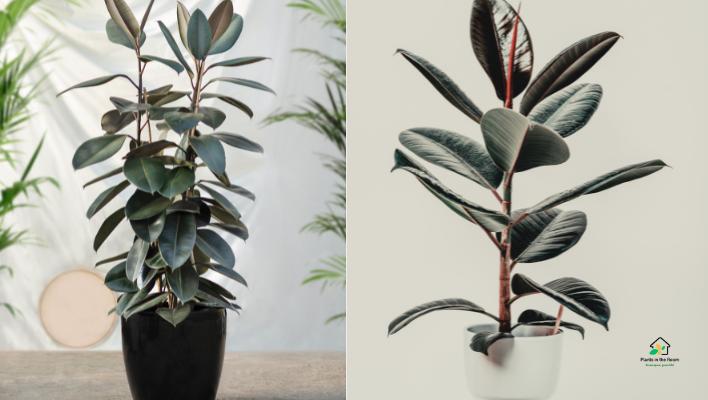
The rubber plant (Ficus elastica) is a low-maintenance option for those looking to improve their sleep environment. This plant can help remove formaldehyde, ammonia, and other toxins from the air. It also thrives in lower light conditions, making it an excellent choice for bedrooms with limited natural light.
The rubber plant can help improve sleep because:
- It removes formaldehyde, ammonia, and other toxins from the air.
- It thrives in lower light conditions, making it ideal for bedrooms with limited natural light.
- The plant’s large, glossy leaves create a visually appealing and calming environment.
9. Gardenia
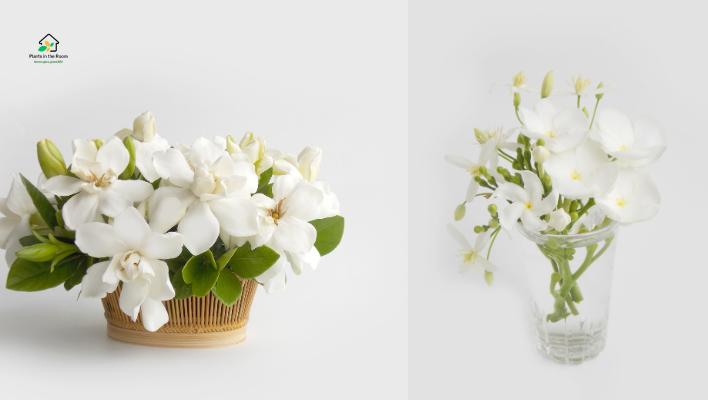
Gardenias (Gardenia jasminoides) are known for their lovely fragrance and striking white flowers. Research has shown that the scent of gardenia can be as effective as some sleep aids in promoting deep sleep. Having a gardenia plant in your bedroom can help you drift off to sleep with ease and wake up feeling refreshed.
Gardenias can help improve sleep because:
- The scent of gardenia has been shown to promote deep sleep.
- It can be as effective as some sleep aids in inducing slumber.
- The beautiful, fragrant flowers create a soothing atmosphere in the bedroom.
10. Chamomile

Chamomile (Matricaria chamomilla) is well-known for its soothing properties, often used as an ingredient in bedtime teas. Growing chamomile indoors can provide a calming atmosphere in your bedroom, helping to ease anxiety and promote better sleep. Plus, you can use the flowers to make your own chamomile tea, providing a natural sleep aid right at your fingertips.
Chamomile can help improve sleep because:
- Its soothing properties are known to ease anxiety and promote relaxation.
- Growing chamomile indoors creates a calming atmosphere in the bedroom.
- The flowers can be used to make chamomile tea, a natural sleep aid, right at your fingertips.
11. Valerian
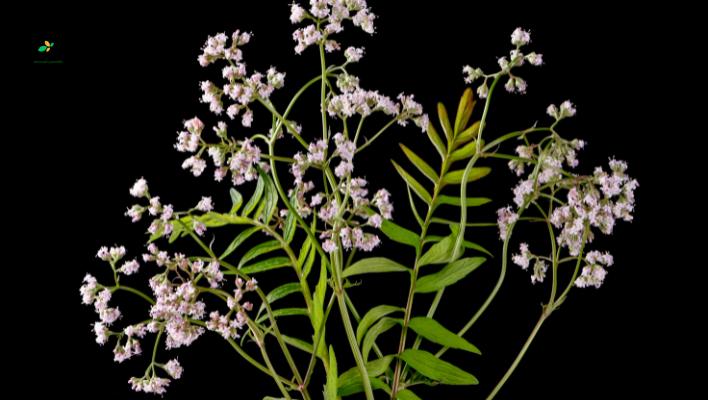
Valerian (Valeriana officinalis) is another herb with sleep-inducing properties. Its root has been used for centuries as a natural remedy for insomnia. While the plant itself might not have a direct impact on your sleep, having it nearby can serve as a reminder of the importance of a good night’s rest, and its fragrant flowers can create a soothing environment in your bedroom.
Valerian can help improve sleep because:
- Its root has been used as a natural remedy for insomnia for centuries.
- While the plant itself may not directly impact sleep, its presence can serve as a reminder of the importance of rest.
- The fragrant flowers can create a soothing environment in the bedroom.
12. English Ivy
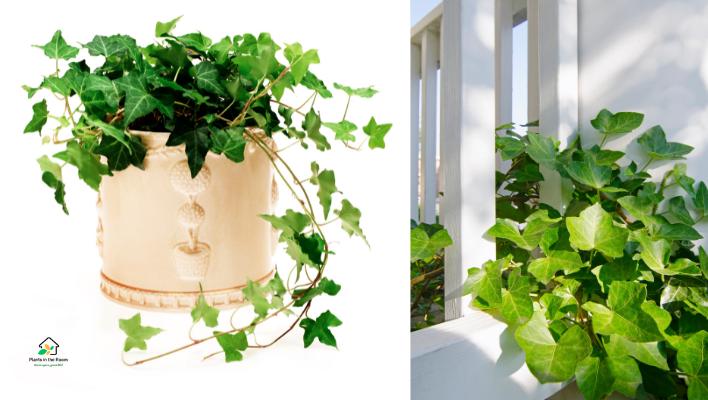
English ivy (Hedera helix) is an excellent plant for improving indoor air quality. It’s known to remove allergens like mold and dust mites from the air, making it an ideal choice for those with allergies or asthma. Better air quality can help you breathe easier at night, leading to improved sleep.
English ivy can help improve sleep because:
- It removes allergens like mold and dust mites from the air, which is beneficial for those with allergies or asthma.
- Better air quality can help you breathe easier at night, leading to improved sleep.
- The plant’s climbing nature can add a visually calming element to your bedroom.
13. Philodendron
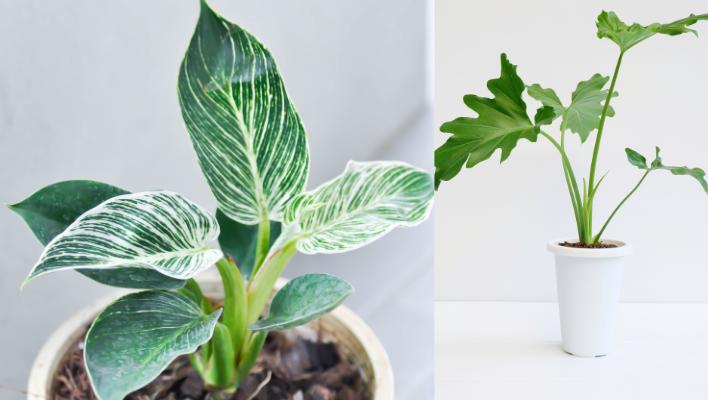
Philodendrons (Philodendron spp.) are not only visually appealing but also effective in purifying the air. They can remove toxins like formaldehyde, benzene, and trichloroethylene, which can contribute to a healthier sleep environment. Choose a variety that’s safe for your home, as some philodendrons can be toxic to pets and children.
Philodendrons can help improve sleep because:
- They purify the air by removing toxins like formaldehyde, benzene, and trichloroethylene.
- Cleaner air contributes to a healthier sleep environment.
- The variety of visually appealing philodendron species can create a calming atmosphere in the bedroom.
14. Boston Fern

Boston ferns (Nephrolepis exaltata) are great for improving humidity levels in your bedroom, which can help prevent dry throats and nasal passages during the night. They also help remove toxins like formaldehyde and xylene from the air, contributing to a cleaner sleep environment.
Boston ferns can help improve sleep because:
- They improve humidity levels in your bedroom, preventing dry throats and nasal passages.
- The ferns remove toxins like formaldehyde and xylene from the air, contributing to a cleaner sleep environment.
- The lush, green foliage adds a soothing touch to your bedroom.
15. Chinese Evergreen
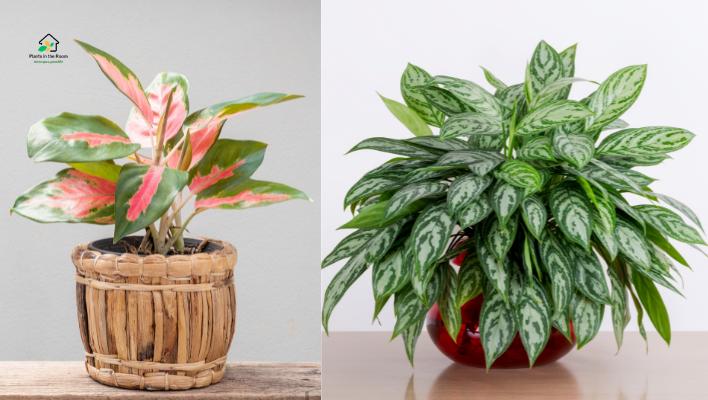
Chinese evergreens (Aglaonema) are easy-to-care-for plants that can survive in low-light conditions. They’re excellent at purifying the air, removing toxins like benzene, formaldehyde, and carbon monoxide. A cleaner, fresher bedroom environment can help you sleep more soundly at night.
Chinese evergreens can help improve sleep because:
- They purify the air by removing toxins like benzene, formaldehyde, and carbon monoxide.
- Their ability to survive in low light conditions makes them an excellent choice for bedrooms with limited natural light.
- A cleaner, fresher bedroom environment can help you sleep more soundly at night.
In Conclusion
Incorporating indoor plants into your bedroom can have a significant impact on your sleep quality. From purifying the air to providing a calming atmosphere, these 15 plants offer numerous benefits that can help you achieve a better night’s sleep.
By understanding the reasons why and how these plants improve sleep, you can make informed decisions about which ones to include in your bedroom. Give them a try, and you might just find that you wake up feeling more refreshed and ready to tackle the day.
Sleep well!

